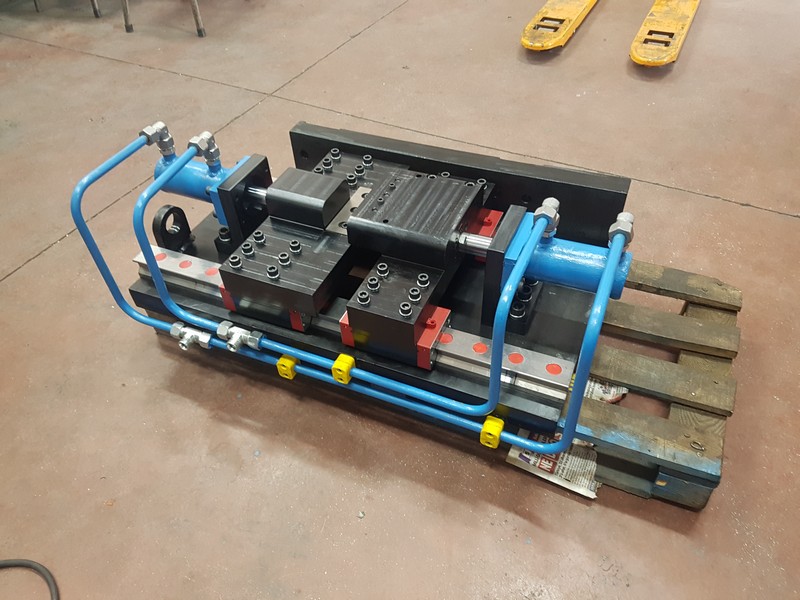When it comes to the realm of industrial machinery, the stakes are high, and so is the margin for error. It’s an investment that requires precision, insight, and savvy – but don’t let the thought of it give you cold feet! This comprehensive guide will illuminate the common pitfalls and mistakes often made when purchasing industrial machinery and provide expert guidance on how to sidestep them. Let’s get the gears turning, shall we?
İçindekiler Tablosu

Understanding the Industrial Machinery Landscape
Let’s face it, the industrial machinery landscape is vast, complex, and at times, overwhelming. It’s not a one-size-fits-all game. The machine that works wonders for one business might be the downfall of another. This diversity and complexity demand a comprehensive understanding of this terrain before you venture into it.
Knowing What You Need
It might seem like a no-brainer, but you’d be surprised at how many businesses bite off more than they can chew by purchasing machinery they don’t need or aren’t equipped to handle. Avoid the allure of the bells and whistles, and stick to what you truly require for your operations.
Setting a Realistic Budget
Remember the golden rule: cost does not necessarily equate to quality. Throwing money at the problem won’t make it go away. Set a realistic budget that factors in not only the initial purchase price but also the cost of operation, maintenance, and possible repairs.
Avoiding Common Mistakes When Purchasing Industrial Machinery
You’ve mapped the terrain and gathered your resources. Now let’s get to the heart of the matter: how to avoid common mistakes when purchasing industrial machinery.
Falling for the Newest Tech Trap
The allure of the latest and greatest can be a dangerous trap. Sure, the shiny new model may look tempting, but is it really what your business needs? Or are you being swayed by fancy marketing and the promise of cutting-edge tech?
Neglecting the Cost of Operation and Maintenance
When calculating costs, don’t stop at the purchase price. The cost of operation and maintenance can be significant and should be included in your budget. Remember, a cheap machine that costs a fortune to run and maintain isn’t a bargain.
Overlooking the Importance of a Reliable Supplier
Your machinery supplier should be more than just a salesperson; they should be a partner in your business’s success. A reliable supplier will provide quality products, excellent service, and valuable after-sales support.
Skipping the Test Drive
Would you buy a car without test driving it? Probably not. So why would you buy a piece of industrial machinery without seeing it in action? A test drive can reveal potential problems and ensure the machine meets your specific needs.
Choosing the Right Machinery for Your Business
Let’s move on to the actual selection process. This is where the rubber meets the road, and you begin to sift through the myriad of options available.
Assessing Your Specific Needs
Before you start shopping, you need to know exactly what you’re shopping for. Assess your business’s specific needs and use these as a benchmark for your machinery search.
Researching and Comparing Different Models
Once you have a clear understanding of your needs, you can begin researching and comparing different models. Look for machinery that matches your requirements and compare features, performance, and prices.
Considering the Machine’s Lifespan and Resale Value
A machine’s lifespan and resale value are important considerations. Machines with a longer lifespan will provide better value for money, while those with a good resale value can provide a financial safety net if your business’s needs change.
Securing Your Investment
The final step in the purchasing process is to secure your investment. This involves taking steps to ensure your machinery is protected and maintained.
Investing in a Good Warranty
A good warranty can protect your investment and provide peace of mind. Make sure to understand the terms and conditions of the warranty and what it covers.
Planning for Regular Maintenance
Regular maintenance is essential for keeping your machinery in good working order. Plan for routine inspections, servicing, and repairs.
Training Your Staff
Proper operation of machinery is crucial for its longevity and safety. Invest in training for your staff to ensure they can operate the machinery safely and efficiently.
FAQs About Avoiding Mistakes When Purchasing Industrial Machinery
What’s the biggest mistake businesses make when purchasing industrial machinery?
One of the biggest mistakes is not doing enough research before purchasing. This can lead to buying machinery that doesn’t meet the business’s needs or costs more than necessary.
Should I always buy the newest model of a machine?
Not necessarily. While newer models often have advanced features, they might not always be the best fit for your business. Consider your needs and budget before deciding.
How do I find a reliable machinery supplier?
Look for suppliers with a good reputation, positive customer reviews, and a strong after-sales support system.
Why is a test drive important when buying industrial machinery?
A test drive allows you to see the machine in action and assess its performance. It can help identify potential issues and ensure the machine fits your specific needs.
What factors should I consider when choosing machinery for my business?
Consider factors such as your specific needs, the machine’s features, performance, cost, lifespan, and resale value.
How can I protect my investment after purchasing industrial machinery?
Invest in a good warranty, plan for regular maintenance, and provide training for your staff.
Conclusion
Purchasing industrial machinery is a significant investment and a decision that shouldn’t be taken lightly. By understanding the common mistakes and how to avoid them, you can ensure you make the right choice for your business. Remember, knowledge is power, and the more prepared you are, the smoother your machinery purchasing journey will be. Happy hunting!


Leave A Comment